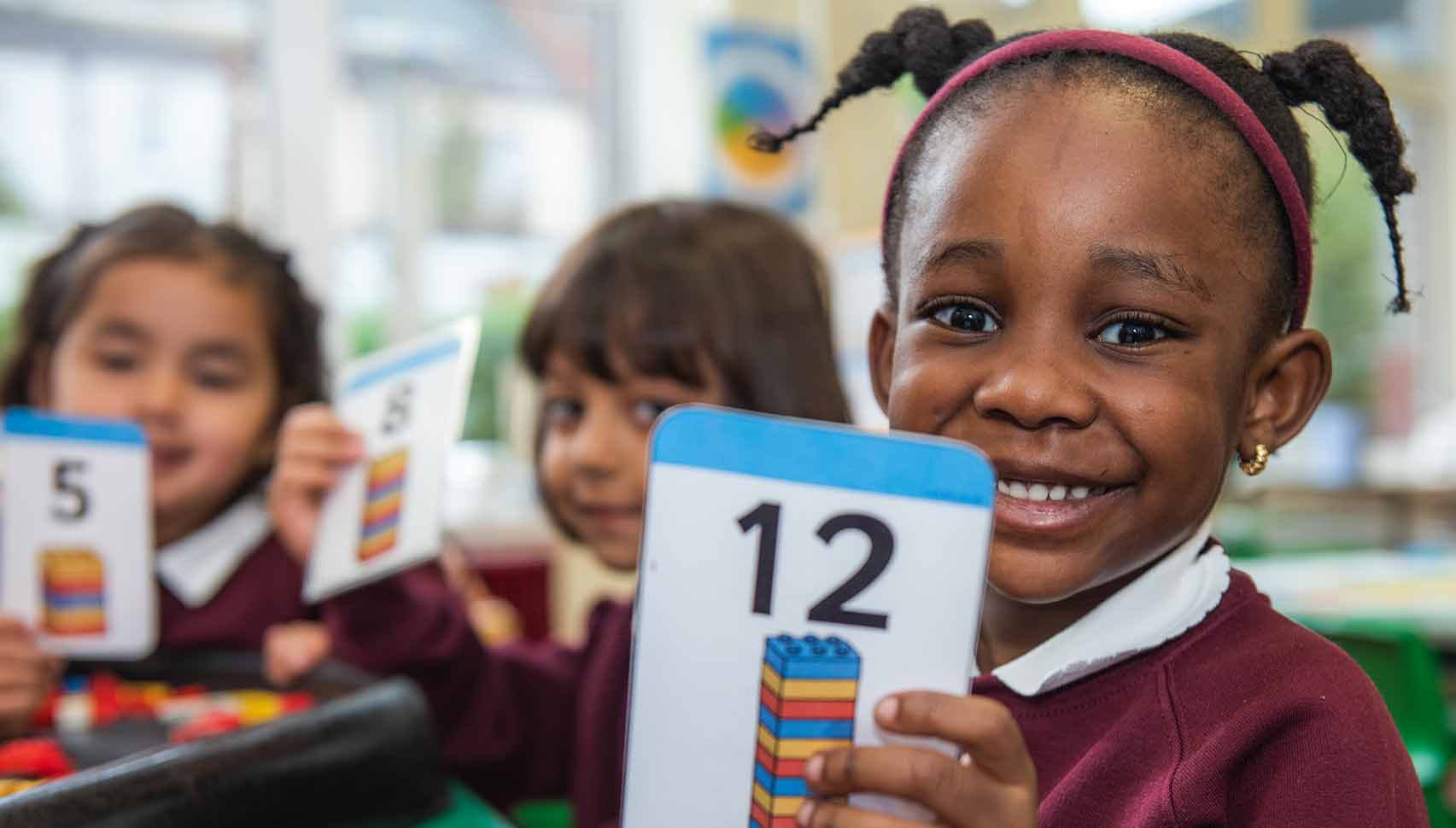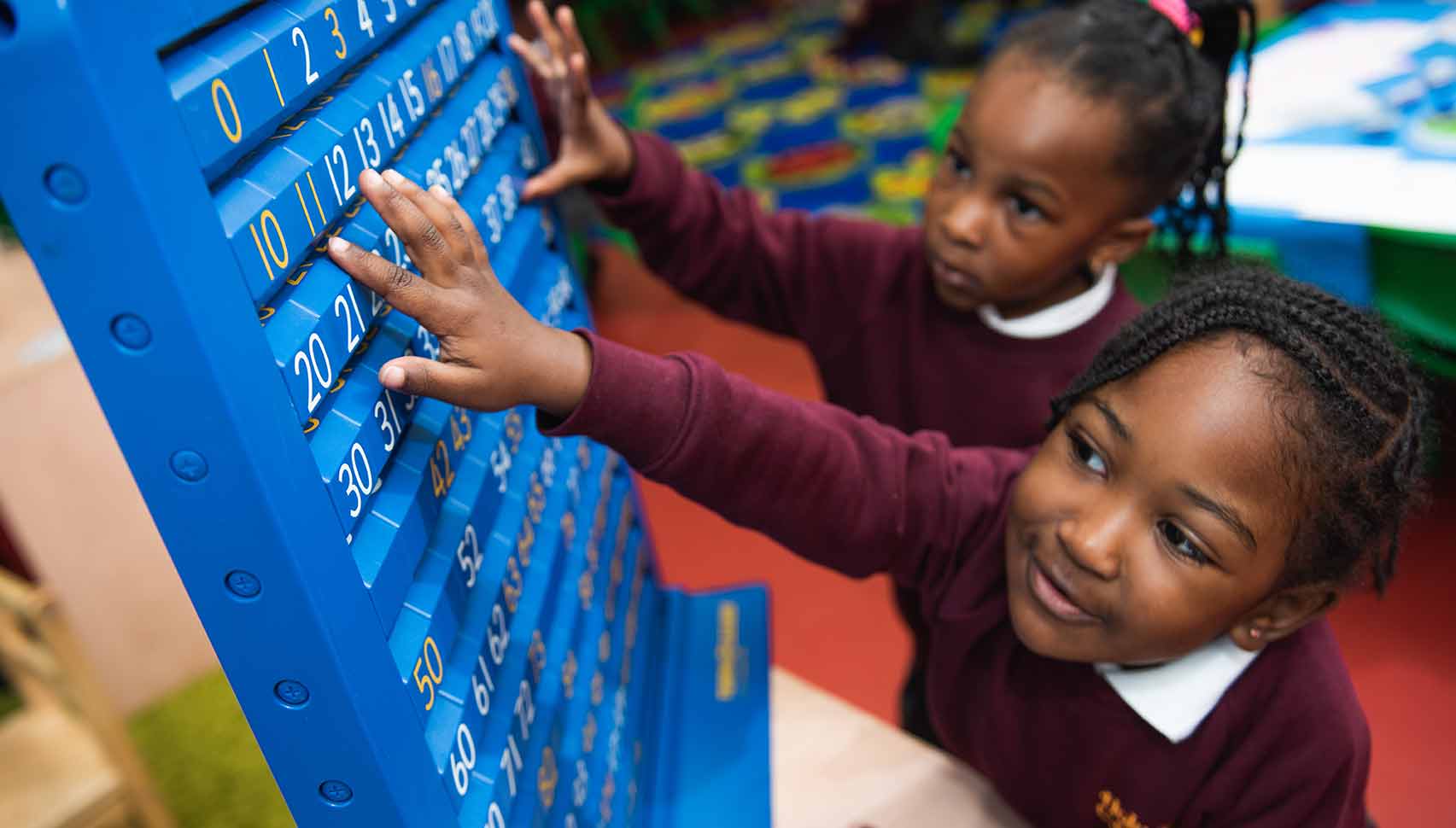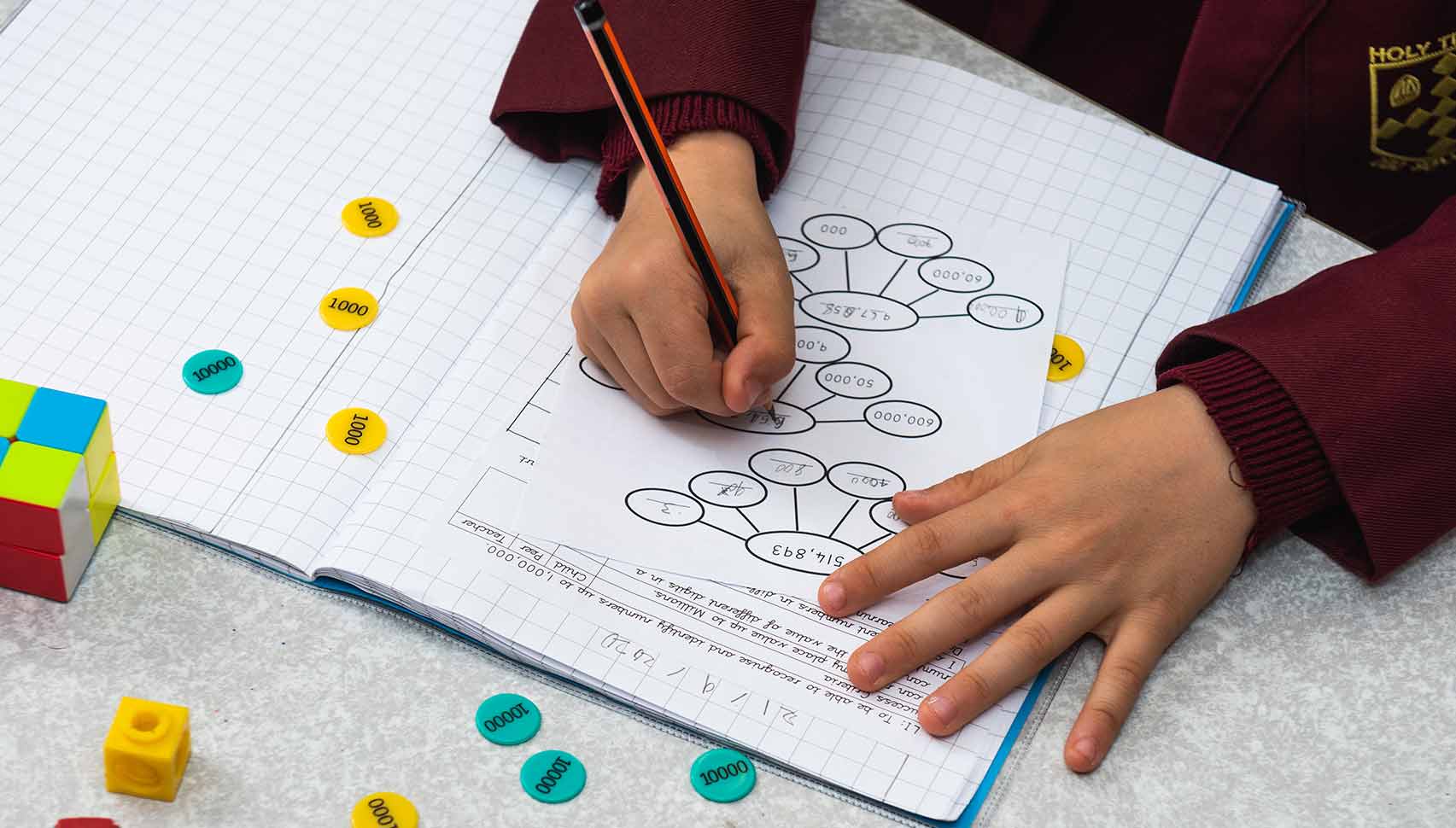Subject Leader : James Payne
We believe that every child deserves a high-quality Maths education in order to access the mathematical world around them, and so that they are prepared for their future lives and careers. Mathematics is a creative and highly interconnected discipline, which is essential to everyday life; critical to science, technology and engineering; and necessary for financial literacy and most forms of employment.
A high-quality mathematics education therefore provides a foundation for understanding the world, the ability to reason mathematically, an appreciation of the beauty and power of mathematics, and a sense of enjoyment and curiosity about the subject.

We take pride in the Maths provision that we give to all children in our school, and this is supplemented with a range of extra-curricular activities. In recent years, we have worked with the Windmill Cluster to provide a Maths Masterclass programme to children in Year 5 and 6 who show a love of Maths, and through this, children were able to try a range of different activities.
Each year, we celebrate Maths week, which involves a variety of different Maths based games, activities and workshops. Last year’s theme, ‘Save the Summer holidays!’ involved classes completing open-ended challenges linked to the topics: shape, multiplication and fractions. The week ends with our fancy dress theme – it was fantastic to see children dressed up as ‘Rockstars and Robots’ last year. This links to our interactive Times Tables practice system – Times Tables Rockstars.


Ultimately, the principle main aim behind Maths lessons at Holy Trinity is to provide children with a high-quality mathematical education, in a fun and interesting way. Through this, we prepare our children for the future by ensuring that they understand key concepts and can use these fluently. By the end of Year 6, all children should have a solid understanding of the four operations (Addition, Subtraction, Multiplication and Division), as well as Times Tables; Fractions, Decimals and Percentages; and how to read and manipulate data.
The national curriculum for mathematics aims to ensure that all children:
- become fluent in the fundamentals of mathematics, including through varied and frequent practice with increasingly complex problems over time, so that children develop conceptual understanding and the ability to recall and apply knowledge rapidly and accurately.
- reason mathematically by following a line of enquiry, conjecturing relationships and generalisations, and developing an argument, justification or proof using mathematical language.
- can solve problems by applying their mathematics to a variety of routine and non-routine problems with increasing sophistication, including breaking down problems into a series of simpler steps and persevering in seeking solutions.
Mathematics is an interconnected subject in which children need to be able to move fluently between representations of mathematical ideas. The programmes of study are, by necessity, organised into apparently distinct domains, but children should make rich connections across mathematical ideas to develop fluency, mathematical reasoning and competence in solving increasingly sophisticated problems. They should also apply their mathematical knowledge to science and other subjects. The expectation is that the majority of children will move through the programmes of study at broadly the same pace.
To support our teaching, and to provide a range of challenges for all children, all teachers use the White Rose Scheme of work to prompt their lesson plans. More information about the White Rose scheme of work can be found online (https://whiterosemaths.com/resources/primary-resources/primary-sols/).
